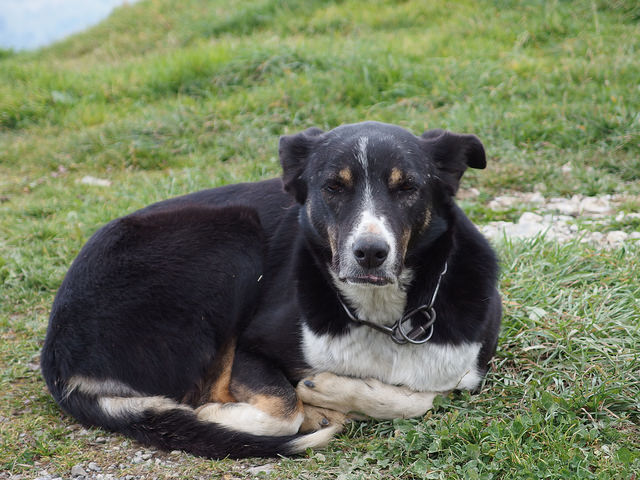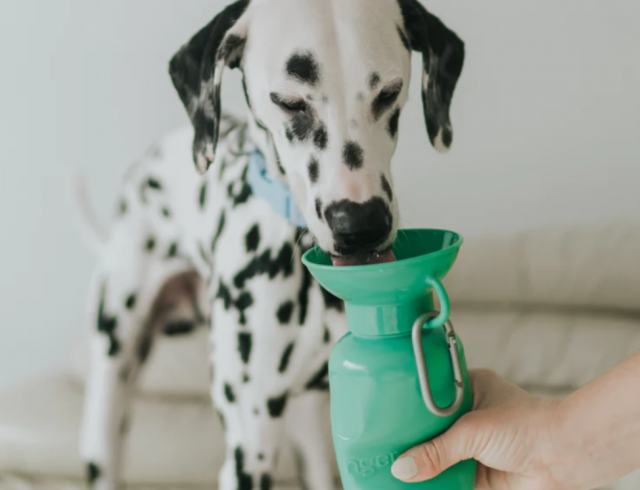iHeartDogs is reader-supported. When you buy via links on our site, we may earn an affiliate commission at no extra cost to you.
Just because your dog is entering their golden years doesn’t mean they can’t enjoy your summer trips just as they always have. However, there are things you should consider before setting out on your next adventure when you have a senior dog. Here are 11 tips to ensure a fun and safe trip for all.
1. Terrain
Senior dogs love a good walk as much as any dog. However, they aren’t up to those steep, rugged hikes to the top of mountains like they used to be. Choose a location with terrain that suits your aged partner and make sure it’s easy to get back to your vehicle in case of an emergency.
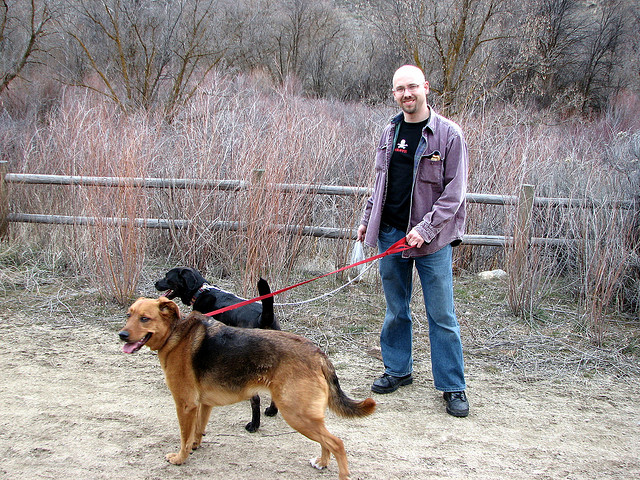
2. Temperature
Senior dogs are more sensitive to extreme temperatures, so plan on going somewhere with a moderate climate. For example, a trip to the Grand Canyon in August where it can be over 100 degrees during the day might not be an ideal choice. On the other hand, visiting a snowy destination with temperatures below freezing may also be risky for your senior pup.
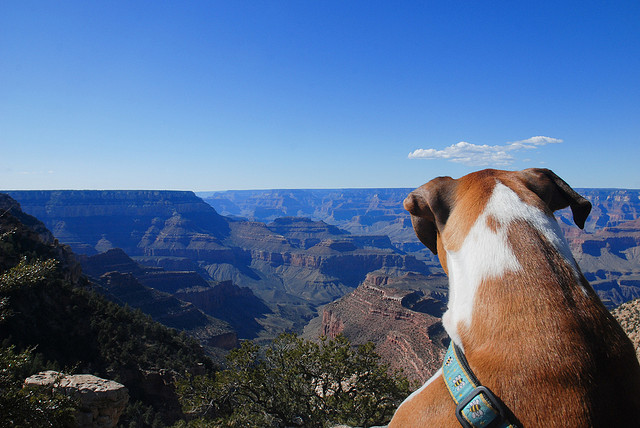
3. Length of Outings
Even if the terrain and temperature are fine, be aware of how much activity your older dog can take before they need a break. Plan shorter outings or have a place to rest before heading back. This is especially important for big dogs that can’t be carried if something goes wrong.
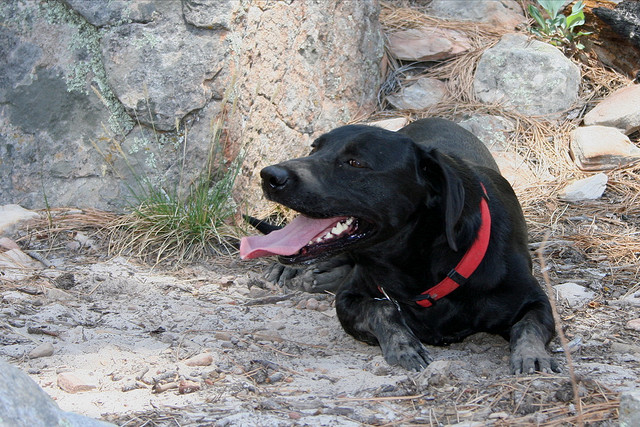
4. Supply Lots of Water
Senior dogs, especially if they have thyroid issues, may need to drink more than a younger dog on a walk. Be sure to pack extra water anytime you travel with them.
An easy way to ensure your senior dog stays hydrated is to get the Springer Classic Dog Travel Water Bottle. This product has a bowl attached to the top so when you squeeze it, the bowl fills up with water for your dog to drink. Then, when you stop squeezing the bottle, the water will go back inside to ensure none is wasted.
5. Have an Emergency Plan
Whenever you’re traveling with your senior dog, make sure you know where the nearest vet is in case of an emergency. Save their number in your contacts beforehand just to be safe. It’s best to not go out of cell range in case you need to call someone to come pick up your dog.
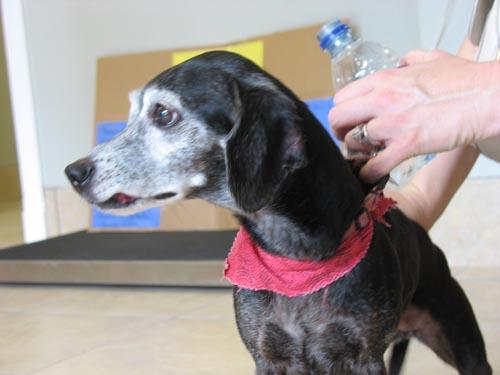
6. Staycation
This is a great choice for a senior dog, especially for dogs that need meds or go to the vet frequently for fluids. Take some time off and just spend time with your best bud in the safety of their home, maybe taking a day trip or two.
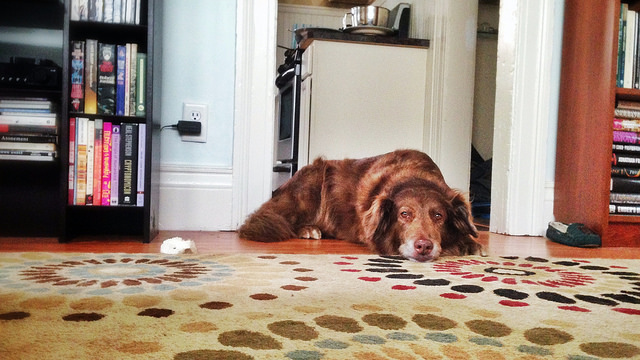
7. Bring Their Bed
Old dog joints can get stiff and sore, especially if they have to sit in the car for a long ride. Make sure your dog is comfortable by bringing their orthopedic bed along for use in the car as well as the hotel. Memory foam beds and elevated beds are perfect for reducing joint pain in older dogs.
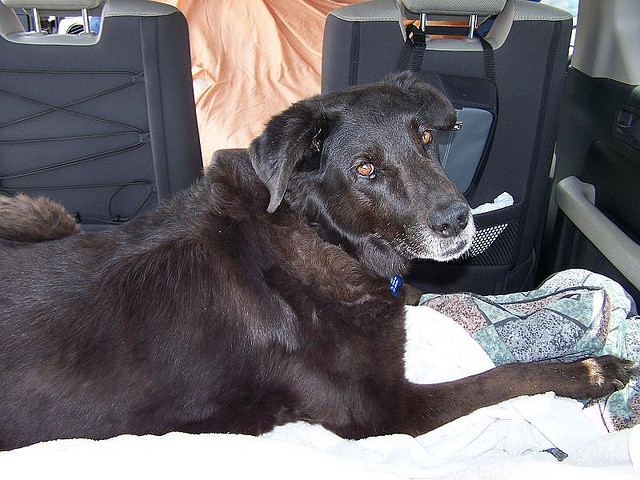
8. Take Lots of Breaks
Whether you are driving in the car, walking, or doing a combination, it takes a toll on your senior dog. Be sure to plan lots of breaks so your pup can get the rest they need. Also, they will likely need more potty breaks than a younger dog, so plan for that, too.

9. Accommodations
Think about your dog’s special needs before booking a stay at a dog-friendly establishment. Can they climb stairs? Do they need to be able to get outside quickly for bathroom breaks? Do they have meds that need to be refrigerated or food that needs to be heated up? Make a list and make sure a place fits them before you book it.
For most senior dogs, booking a hotel room on the first floor will be the easiest and safest. That way, your dog will never have to climb stairs, and they’ll have easy access to the outdoors for bathroom breaks.

10. See Your Vet Before You Go
A quick vet visit before a trip to make sure your dog is in good health is a great idea. It can reduce the risk of something bad happening on the go. After all, most dog parents don’t want to have to turn around or end up staying in some city with your dog at an unknown vet. It’s also a good time to ask if the vet thinks your dog is up to any activities you have planned. They may have tips for how to make your trip with your dog even safer.
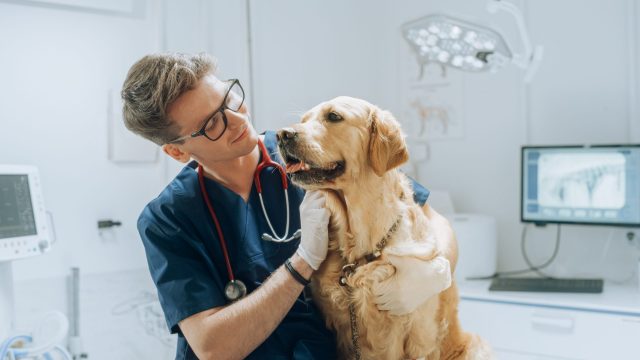
11. Listen to your dog
If your dog is telling you they’re tired, hungry, thirsty, too hot, or too cold, listen to them. Even if it means changing your plans for the day or cutting your trip short.
Of course, dogs can’t directly tell us these things, but since you know your dog better than anyone, you will likely be able to tell if something is wrong. If you suspect your dog isn’t up for an activity, trust your gut.
